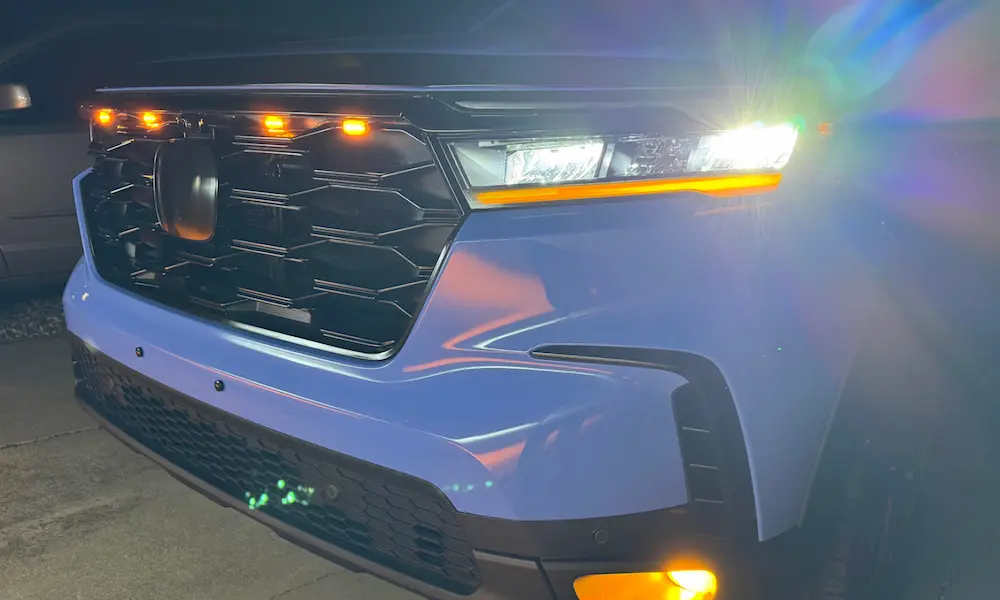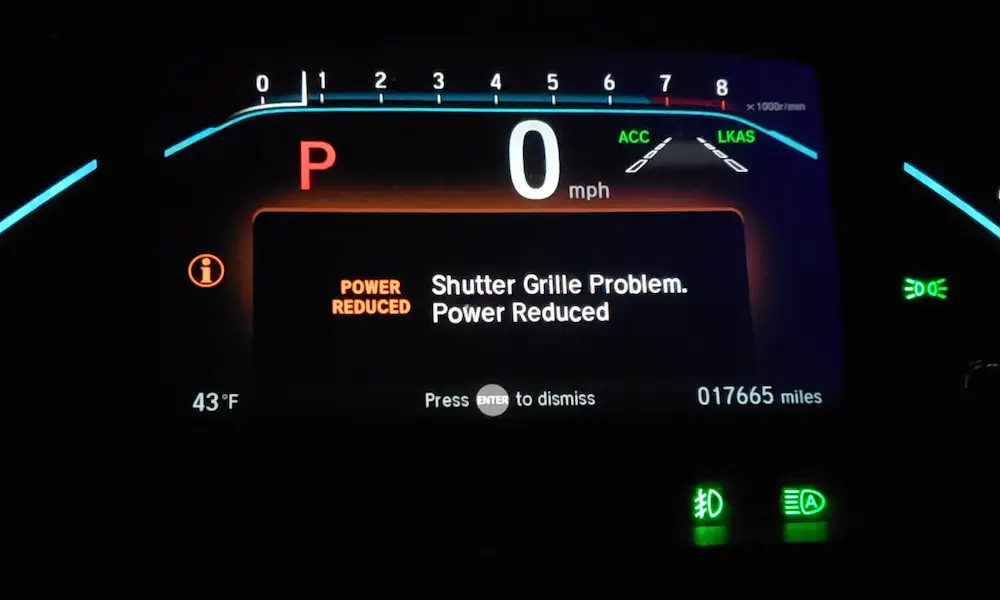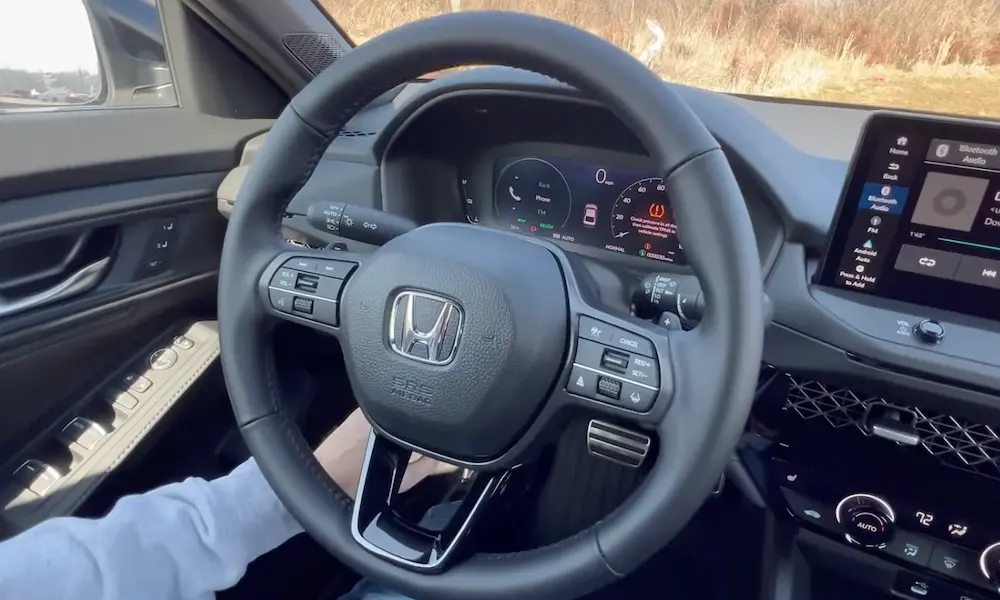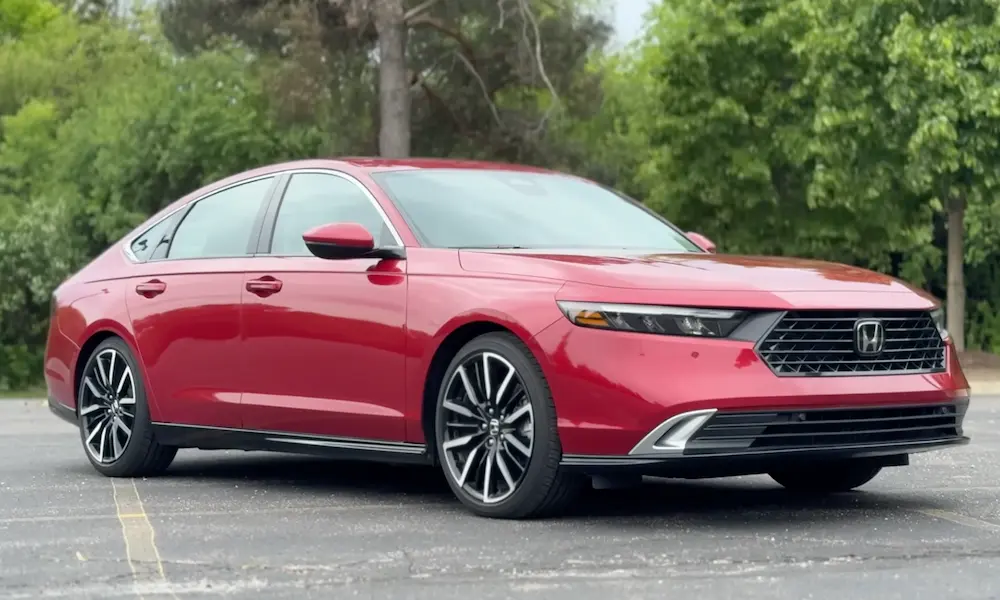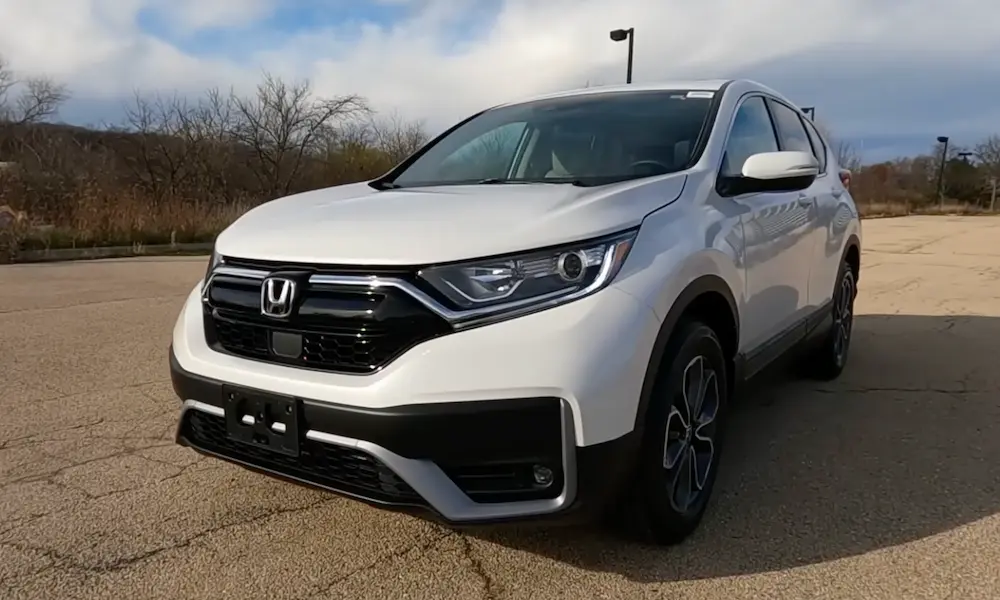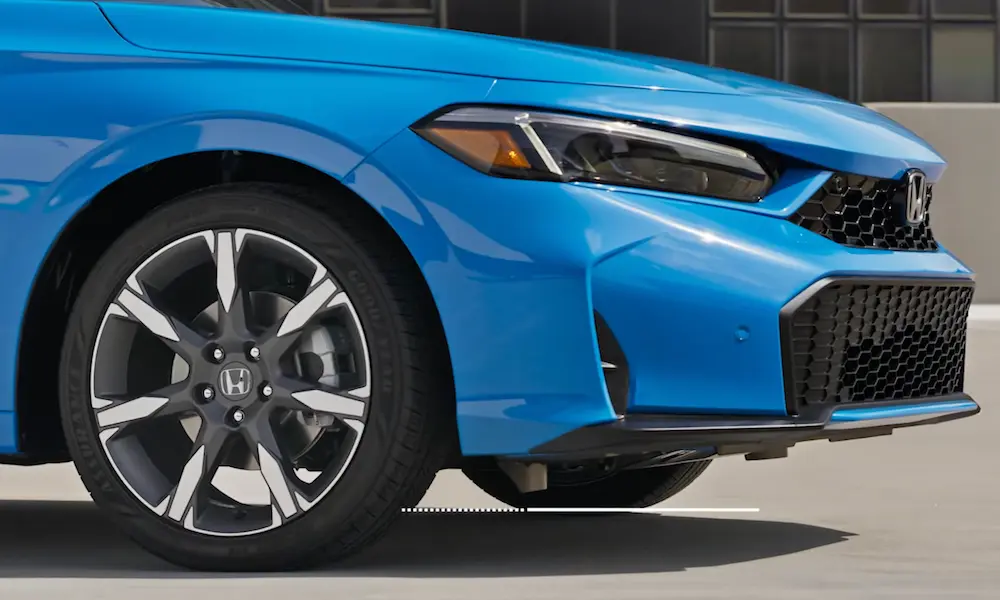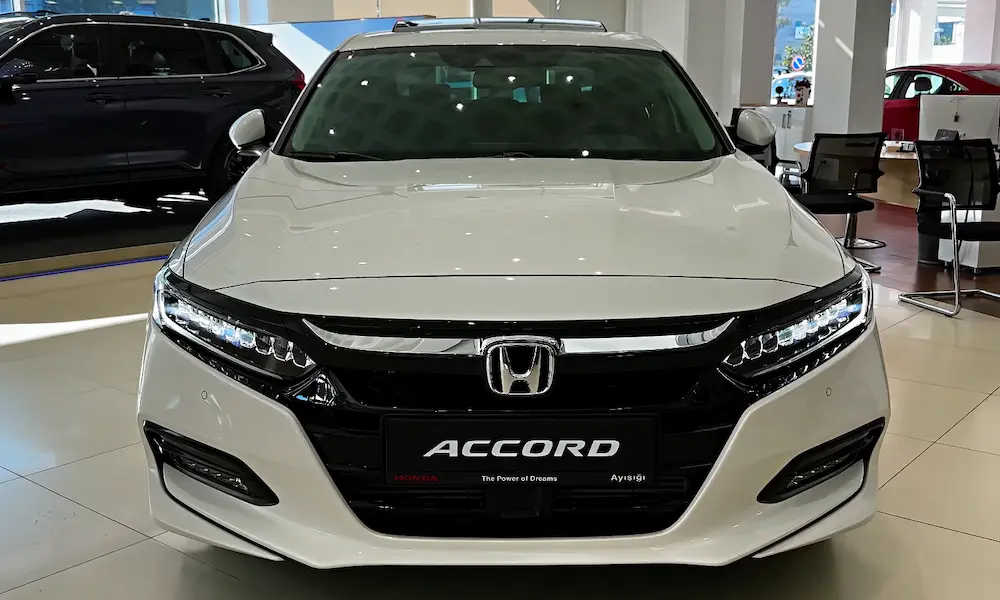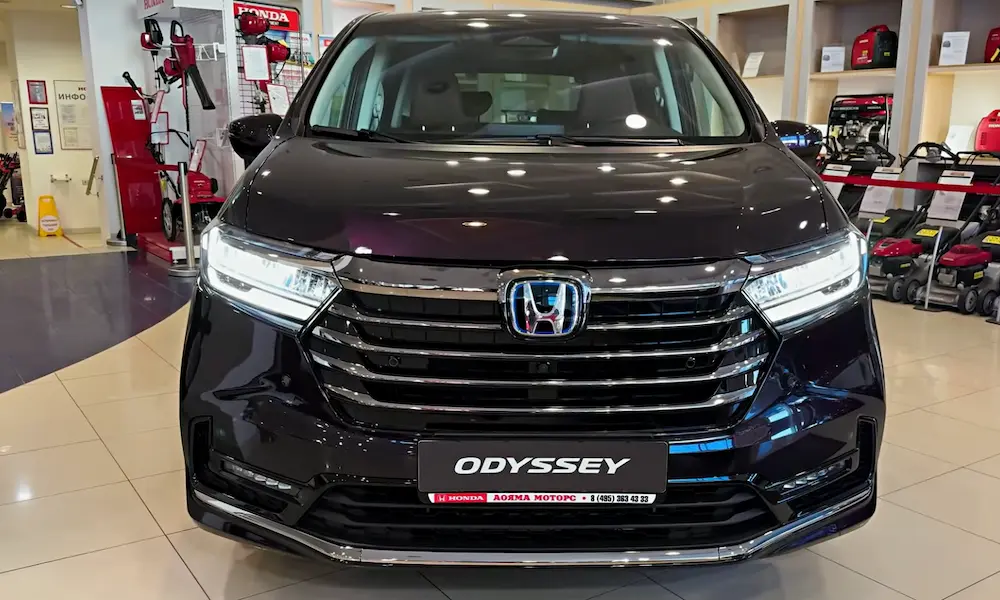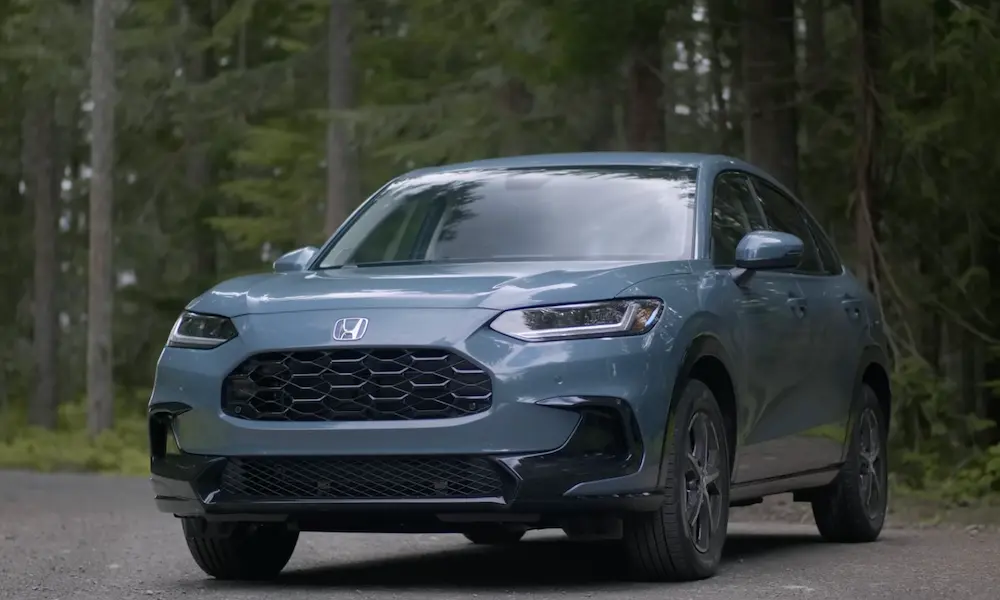Have you been eyeing a new hybrid sedan that doesn’t compromise on performance? The 2025 Honda Accord Hybrid might just tick all your boxes with its impressive engine specifications. Whether you’re comparing it to competitors or just curious about what makes this powertrain special, we’re diving deep into what powers Honda’s flagship hybrid sedan.
The Heart of the 2025 Accord Hybrid
The 2025 Honda Accord Hybrid combines smart engineering with efficiency-focused technology. At its core is a sophisticated powertrain that balances power delivery with fuel economy in ways previous generations couldn’t match.
Powertrain Architecture
The 2025 Accord Hybrid features Honda’s fourth-generation two-motor hybrid system paired with a 2.0-liter Atkinson-cycle DOHC i-VTEC inline-4 gasoline engine. This isn’t your average engine – it achieves an impressive 40% thermal efficiency by using specialized valve timing to optimize the combustion process.
When operating independently, the gasoline engine produces 146 horsepower at 6,100 rpm and 134 lb-ft of torque at 4,500 rpm. But what makes Honda’s system unique is how it works with the electric components. Unlike many hybrids that use complex planetary gearsets, Honda’s two-motor system often decouples the engine from the wheels, allowing the electric motor to be your primary driving force.
Electric Motor Specifications
The electric propulsion motor in the Accord Hybrid delivers impressive stats:
- 181 horsepower at 5,000–8,000 rpm
- 247 lb-ft of torque from 0–2,000 rpm
This instant torque availability is why the Accord Hybrid feels so responsive from a standstill. When you combine both power sources, you get a system output of 204 horsepower and 247 lb-ft of torque – numbers that put the Accord Hybrid ahead of many competitors in its class.
Performance Metrics That Matter
Let’s talk about what these specifications mean for your actual driving experience.
Acceleration and Real-World Performance
While Honda doesn’t publish official 0-60 mph times, independent testing shows the Accord Hybrid outperforms rivals like the Toyota Camry Hybrid and Hyundai Sonata Hybrid. The immediate availability of 247 lb-ft of electric torque gives you confident acceleration, especially in urban environments.
The hybrid system works through an e-CVT transmission that includes deceleration selectors and a 4-mode drive system. You can choose between:
- Econ (maximizes efficiency)
- Normal (balanced performance)
- Sport (enhanced responsiveness)
- Individual (customizable settings)
This flexibility lets you tailor the driving experience to your preferences or current conditions.
Fuel Economy Breakdown
The 2025 Accord Hybrid offers impressive efficiency that varies by trim level:
| Trim Level | City MPG | Highway MPG | Combined MPG |
|---|---|---|---|
| EX-L Hybrid | 51 | 44 | 48 |
| Sport Hybrid | 46 | 41 | 44 |
| Touring Hybrid | 46 | 41 | 44 |
The EX-L Hybrid’s 51 MPG city rating leads the non-plug-in hybrid sedan class. With a 12.8-gallon fuel tank, this translates to a potential driving range of 563 miles – perfect for those who hate frequent gas station visits.
Evolution of Honda’s Hybrid Technology
The 2025 model represents over a decade of refinement in Honda’s hybrid technology.
From 2014 to 2025: A Decade of Improvement
When Honda’s two-motor system debuted in the 2014 Accord Hybrid, it produced 196 total horsepower. By 2018, this increased to 212 horsepower with a redesigned power unit that improved trunk space.
The current fourth-generation system (2023-2025) offers several advancements:
- 40% reduction in power unit volume compared to the 2018 model
- Enhanced power density in the electric motors
- Improved regenerative braking calibration
Each iteration has built upon previous successes while addressing limitations, resulting in a more refined and efficient powertrain.
How It Stacks Up Against Competitors
The Accord Hybrid’s 204 combined horsepower puts it in a competitive position against the Toyota Camry Hybrid (208 hp) and Hyundai Sonata Hybrid (192 hp). However, where it really shines is torque – the Accord’s 247 lb-ft significantly outmuscles the Camry’s 163 lb-ft and the Sonata’s 195 lb-ft.
This torque advantage translates to stronger mid-range acceleration and easier hill climbing. The Toyota does maintain a slight edge in highway efficiency, achieving 53 MPG versus the Accord’s 44 MPG in the EX-L trim, primarily due to its smaller 1.8L engine compared to Honda’s 2.0L.
Engineering Excellence: Thermal Management and Emissions
The 2025 Accord Hybrid doesn’t just focus on power and efficiency – it’s built to last.
Cooling Systems and Longevity
Honda engineers implemented a dual-loop cooling system that separately manages temperatures for the gasoline engine and hybrid battery. The lithium-ion battery pack operates within a 15–40°C range for optimal performance and longevity, supported by an active air intake system that adjusts based on driving conditions.
This sophisticated thermal management contributes to Honda’s claim of “no scheduled tune-ups” for the first 100,000 miles, potentially reducing your ownership costs over time.
Emissions Standards and Environmental Impact
Both the standard and hybrid Accord models meet CARB LEV3-SULEV30 standards, with the hybrid producing 33% fewer CO2 emissions than the turbocharged 1.5L Accord. Honda has also focused on recyclability, designing both the nickel-metal hydride batteries (used in base trims) and lithium-ion batteries (in higher trims) for easy disassembly at end-of-life.
Driver-Focused Technology
The 2025 Accord Hybrid integrates several technologies that enhance the driving experience while maximizing efficiency.
Regenerative Braking and Control
One of the most useful features is the steering wheel-mounted paddles that let you adjust regenerative braking force across four levels. This ranges from a near-coasting experience (Level 1) to something approaching one-pedal driving (Level 4).
This system can recuperate up to 0.3 kWh per mile during stop-and-go traffic, sending that energy back to the battery without the jarring brake pedal feedback some hybrids exhibit.
Hybrid-Specific Driving Modes
The drive modes in the Accord Hybrid are tailored to get the most from its unique powertrain:
- Sport Mode: Keeps the gasoline engine more active for sustained power delivery and sharper throttle response
- Econ Mode: Limits climate control output and smooths acceleration curves to maximize efficiency
- Individual Mode: Allows you to customize steering weight, drivetrain behavior, and instrument display layout
These options let you prioritize performance or efficiency depending on your needs for any given drive.
Value Proposition and Market Position
Efficiency vs. Performance Balance
While some enthusiasts on online forums like Reddit discuss the potential for high-performance hybrid variants, Honda’s research indicates that 72% of Accord Hybrid buyers prioritize fuel economy over raw acceleration. This explains their focus on refining efficiency rather than pursuing niche performance segments.
Cost Analysis
The 2025 Accord Hybrid starts at $34,750, undercutting the Toyota Camry Hybrid by approximately $1,200 while offering superior features like a larger infotainment display (12.3-inch vs. 8-inch) and Honda’s comprehensive safety suite.
Over a 100,000-mile lifespan, the EX-L Hybrid’s excellent fuel economy could save you about $6,200 in fuel costs compared to the non-hybrid Accord (assuming $3.50/gallon gas). This helps offset the initial price premium for the hybrid technology.
| Feature | 2025 Accord Hybrid | Toyota Camry Hybrid |
|---|---|---|
| Starting MSRP | $34,750 | $35,950 |
| Infotainment | 12.3-inch display | 8-inch display |
| System Torque | 247 lb-ft | 163 lb-ft |
| City MPG (base hybrid) | 51 | 51 |
| Standard Safety | Honda Sensing® suite | Toyota Safety Sense |
What Makes the 2025 Accord Hybrid Special
The 2025 Honda Accord Hybrid represents the culmination of years of refinement in hybrid technology. Its powertrain stands out in several ways:
Advanced Two-Motor System
Unlike traditional hybrid setups, Honda’s system doesn’t always need to engage the gasoline engine to move the car. This creates a more EV-like driving experience in many situations while maintaining the convenience of never needing to plug in.
Class-Leading Thermal Efficiency
The Atkinson-cycle engine achieves 40% thermal efficiency – a benchmark figure that exceeds many competitors and approaches the theoretical limits of what gasoline engines can achieve. This directly translates to better fuel economy and lower emissions.
Immediate Torque Delivery
With 247 lb-ft of torque available from essentially 0 rpm, the Accord Hybrid delivers a responsive driving experience that belies its efficiency-focused mission. This instant power delivery makes merging and passing maneuvers confidence-inspiring.
Refined Driving Experience
Honda’s engineers have carefully tuned the brake feel, throttle response, and transition between power sources to create a seamless experience. Unlike early hybrids that could feel awkward or unnatural, the 2025 Accord Hybrid delivers a polished driving experience that rivals conventional powertrains.
The Future of Honda Accord Hybrid Technology
Looking ahead, Honda may continue evolving the Accord Hybrid powertrain in several directions:
Potential for Plug-in Capabilities
While the current system doesn’t require plugging in, Honda might explore adding plug-in capabilities to future models, potentially increasing all-electric range and efficiency for short commutes.
Battery Technology Advancements
As battery technology evolves, future Accord Hybrids could benefit from more energy-dense storage solutions, possibly including solid-state batteries that could reduce weight while increasing capacity.
Performance Hybrid Variants
Although efficiency remains the primary focus, Honda’s performance heritage could eventually lead to sportier hybrid variants that leverage electric torque for enhanced performance without sacrificing too much efficiency.
The 2025 Honda Accord Hybrid successfully walks the line between efficiency and engagement, offering a compelling option for drivers who want to reduce their environmental impact without sacrificing the responsive driving experience Honda is known for. With its sophisticated powertrain, class-leading city fuel economy, and compelling feature set, it sets a high bar in the midsize hybrid sedan segment.



